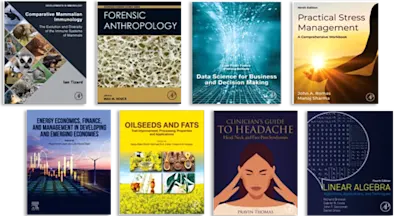
Energy and Behaviour
Towards a Low Carbon Future
- 1st Edition - November 1, 2019
- Imprint: Academic Press
- Editors: Marta Lopes, Carlos Henggeler Antunes, Kathryn B. Janda
- Language: English
- Paperback ISBN:9 7 8 - 0 - 1 2 - 8 1 8 5 6 7 - 4
- eBook ISBN:9 7 8 - 0 - 1 2 - 8 1 8 5 6 8 - 1
Changes to energy behaviour — the role of people and organisations in energy production, use and efficiency — are critical to supporting a societal transition towards a low ca… Read more

Purchase options

Institutional subscription on ScienceDirect
Request a sales quoteChanges to energy behaviour — the role of people and organisations in energy production, use and efficiency — are critical to supporting a societal transition towards a low carbon and more sustainable future. However, which changes need to be made, by whom, and with what technologies are still very much under discussion. This book, developed by a diverse range of experts, presents an international and multi-faceted approach to the sociotechnical challenge of engaging people in energy systems and vice versa. By providing a multidisciplinary view of this field, it encourages critical thinking about core theories, quantitative and qualitative methodologies, and policy challenges. It concludes by addressing new areas where additional evidence is required for interventions and policy-making. It is designed to appeal to new entrants in the energy-efficiency and behaviour field, particularly those taking a quantitative approach to the topic. Concurrently, it recognizes ecological economist Herman Daly’s insight: what really counts is often not countable.
- Introduces the major disciplinary and interdisciplinary approaches to understanding energy and behaviour
- Delivers a cross-sectoral overview including energy behaviour in buildings, industry, transportation, smart grids, and smart cities
- Reviews a selection of innovative energy behaviour modelling approaches, including agent-based modelling, optimization, and decision support
- Critically addresses the importance of interventions, policies, and regulatory design
This book is written for researchers and practitioners interested in human, social, and organisational behaviour in energy systems and policies, particularly as related to energy efficiency. It provides evidence and insights on behavioural change policies and programmes useful for academic researchers, energy policy makers, utility professionals, and consultants involved in energy policy research, design and implementation. It is designed to serve as both a primer for new entrants in the energy and behaviour field and a critical resource for students, policy makers, and practitioners.
- Edition: 1
- Published: November 1, 2019
- No. of pages (Paperback): 558
- Imprint: Academic Press
- Language: English
- Paperback ISBN: 9780128185674
- eBook ISBN: 9780128185681
ML
Marta Lopes
CH
Carlos Henggeler Antunes
KJ